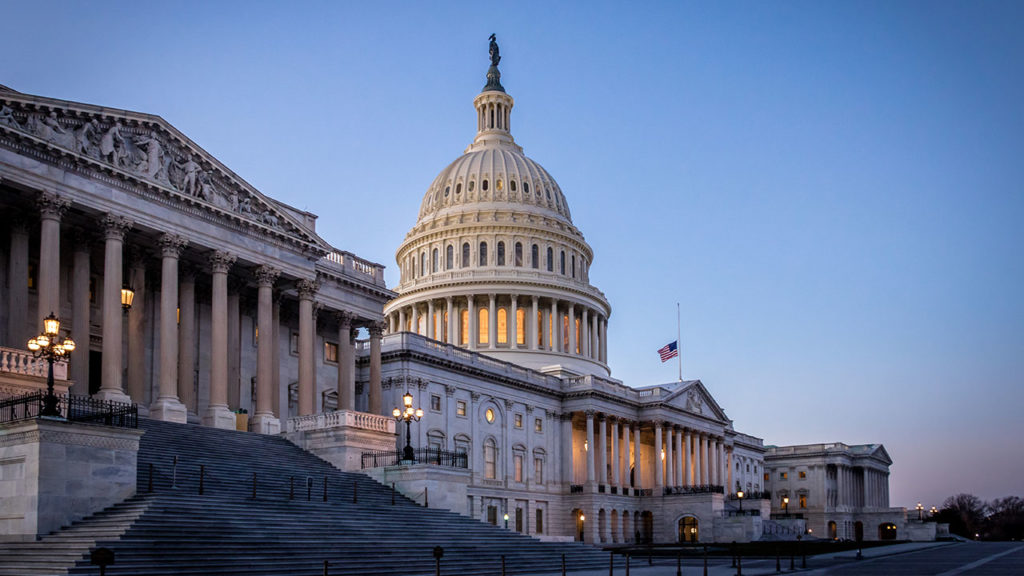I’m a fan of tax-advantaged retirement accounts, like IRAs and 401(k)s. I’m also a fan of reasonable federal legislation to periodically update these accounts to make them attractive, available, and useful as retirement savings tools, while still serving society’s best interests.

The Democratic-controlled House passed The Setting Every Community Up For Retirement Enhancement and Savings (SECURE) Act in May 2019. It’s a bi-partisan bill, with the Republican Senate expected to approve it sometime this year, possibly with minor modifications. The Republican President is expected to sign it into law. It’s almost as if we have a real functioning government and cooperation on an important issue, people! This is exciting!
The SECURE Act provides a bunch of incremental improvements to retirement fund rules and most of the changes are investor-friendly – in the sense that they make IRA rules more generous and more advantageous for investing in one’s retirement.
I’ll list below some of the small, but good, improvements for investors below, but after that I want to highlight the only part of the proposed bill that is actually less generous to investors. The fact that it is less generous is good, in my opinion, although many of you savers and investors might disagree with me.
Incremental Improvements
But first, I’ll highlight the goodies for investors, if and when the bill passes.
- You can make contributions up until any age into a Traditional IRA, rather than having to cease contributions at age 70.5.
- The age for starting Required Minimum Distributions (RMDs) would increase from 70.5 to 72.
- Small businesses could form multi-company groups to offer 401(k) plans, to share and therefore reduce administrative costs.
- Part-time workers could participate in 401(k) plans
These are all incremental but each increases incentives to save and invest over the long run in a tax advantaged way.
There are a few other proposed provisions – some regarding 529 accounts and others requiring disclosure on 401(k) plans about how much income could be derived from account balances if annuitized.
One of the proposals in the SECURE Act limits something called the ‘stretch IRA.’ I like the stretch IRA personally, but hate it philosophically – so limiting it strikes me in opposite ways.
On the personal side, if there’s a way to reduce taxes and build wealth, I may want to do it myself and I usually tend to tell other people about it. This is a case of: It shouldn’t exist, but since it does exist you should take advantage of it if you can. I’ve previously written about the joys and opportunities of the stretch IRA in my book on personal finance and on my blog.
On the philosophical side, however, the stretch IRA rubs me the wrong way. I mean that from a “societal good” perspective. The principle of the thing, like much of tax reform around inheritance over the last thirty-five years, tends to aggravate one of our great societal problems already: wealth inequality.
Here are the basics of a stretch IRA, which the SECURE Act, as currently passed by the House, limits.

Heirs who inherit an IRA are required to withdraw a certain amount money every year based on their own expected lifetime. They have to take out an amount calculated as the account value divided by their expected remaining life (as determined by an IRS table.) An 18 year-old, with an expected remaining life of 65 years, for example, who inherits $100,000 from Grandma’s IRA, would be required to withdraw around 1.5% of her account as income this year. Or $1,538 – because that’s $100,000 divided by 65.
Importantly for the ‘stretch’ theory, however, she could leave the remaining amount in the account to grow, tax-advantaged, into the future. Each year, the heiress would only be forced to withdraw a small amount. Based on her long remaining life and small withdrawals, her inherited stretch IRA account, under most scenarios, would grow until approximately her own retirement age. Carefully done, that’s nearly 5 decades of tax-advantaged inheritance, a growing account, and a rising annual income from the account.
I say, old chap, that sound delightfully like the good old days of the English aristocracy.
With careful planning, this could produce millions of tax-advantaged income over the young heiresses lifetime. The larger the original inheritance, obviously, the larger the advantage. The traditional key to a stretch IRA is to leave funds to young heirs, who can take advantage of the rules of required minimum distributions, based on a long ‘expected life.’
The limit proposed by the House version of the SECURE Act is that inherited IRAs would have to be fully withdrawn within 10 years, curtailing the ‘stretch’ previously enjoyed by young heirs.
Fighting the Aristocracy
So what’s my big problem with the “stretch IRA?”
Simply this: Children don’t deserve free money. Intergenerational wealth transfers merit careful limits. My particular American preference for a democratic world makes me think aristocratic societies – in which inherited wealth creates lifetime comfort for a fortunate few – are bad. The stretch IRA was one small piece of a larger intergenerational wealth-transfer industry. So I applaud the SECURE Act’s attack on it, or for limiting it to just 10 years, on these philosophical grounds.
Finally – were I a betting man about this part of the SECURE Act, I’d bet against the right thing happening. I am a complete Washington outsider, but I do have a cynic’s instinct for who funds Congressional campaigns. There’s a particularly high correlation – regardless of party – between people who fund Congressional campaigns and people who understand and can benefit from tax-advantaged intergenerational wealth transfers.
The history of tax and estate legislation regarding wealth transfers for the last 35 years – regardless of the party in Congress – appears to me an unrelenting move toward favoring the establishment of intergenerational wealth. So, I personally wouldn’t bet on this small step against the American aristocracy surviving in the Senate this year.
But, we can hope. So far, it’s still in the bill.
Please see related posts:
So I guess we all like Trust Fund Kids, right?
Post read (166) times.




